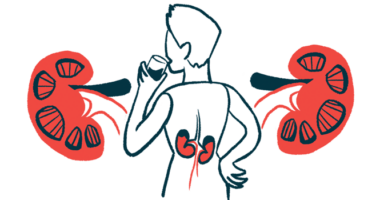Heart Valve Damage Might Be Cause of Breathing Difficulties in ANCA-Associated Vasculitis, Case Report Says

While breathing difficulties in ANCA-associated vasculitis patients are often a symptom of worsening vasculitis in their lungs, doctors should also consider cardiac valve involvement — or damage to heart valves — as a possible cause, a case report suggests.
The study, “Anti-Neutrophil Cytoplasmic Antibody (ANCA) Associated Vasculitis Causes Aortic Valve Degeneration and Severe Aortic Regurgitation,” was published in the American Journal of Case Reports.
Granulomatosis with polyangiitis (GPA) and eosinophilic GPA (EGPA) are two subtypes of ANCA-associated vasculitis that may affect the heart. Most times, they damage the heart muscle but, in some rare cases, they can also damage the cardiac valves.
A team of doctors in Denmark reported the case of a 56-year-old male patient diagnosed with ANCA-associated vasculitis who developed respiratory problems mainly caused by a loss of function of the aortic valve — the valve that separates the left ventricle and the aorta.
The patient had a stroke that resolved spontaneously, leaving no permanent damage, at the age of 49. Ten weeks after the stroke, he had a third-degree atrioventricular block, meaning that his heart’s atria could not communicate with the ventricles.
His doctors thought that the block was caused by an infection, but the symptoms persisted after treatment with antibiotics. Therefore, the doctors implanted a pacemaker to restore heart function.
During his hospitalization, he complained of fatigue, weight loss, and night sweating. His lab results showed that he had anemia.
Further tests showed the presence of anti-neutrophil cytoplasmic autoantibodies (ANCAs), arthritis, sinusitis, and a Birmingham Vasculitis Activity Score score of 15, leading to a diagnosis of ANCA-associated vasculitis (either GPA or EGPA).
He received steroids and methotrexate for six months. The treatment caused remission and reduced ANCA levels. After two years in remission, he stopped taking the medications.
After one year without medication, the patient reported difficulty breathing, and his ANCA levels had risen again. He restarted treatment, but his symptoms persisted.
Further examination showed a low aortic regurgitation — when the aorta pushes blood back into the left ventricle — reduced physical activity, and severe obstructive pulmonary disease. The treatment was supplemented with an anticoagulant.
During the following 12 weeks, the patient’s respiratory symptoms worsened. An echocardiography showed that he had heart failure, with his left ventricle pumping low amounts of blood out of the heart (30%–35% the normal levels).
He also had a severe insufficiency in the aortic valve — the valve that connects the left ventricle to the aorta — and the aortic regurgitation had increased. The lack of heart function was thought to cause his difficulty in breathing.
The doctors performed an aortic valve replacement. After the surgery, the patient received heart medication, and the pacemaker was reprogramed, which allowed him to breathe better.
Two months after surgery, his physical capacity had increased significantly. He could walk several kilometers a day, whereas before the surgery he could walk 500 meters without getting tired.
One year after surgery, his tests showed that the new valve was working well, he no longer had aortic regurgitation, and the function of his ventricle was improving. He still had to go to the doctor regularly and take medication to avoid future flares.
This case underscores the importance of a multidisciplinary approach and continuous follow-up even after remission, especially in patients with additional conditions.
“Patients with vasculitis presenting with worsening of dyspnea (difficulty breathing) should not only be suspected to have an exacerbation of pulmonary involvement, but also severe valvular involvement should be considered,” the researchers concluded.





